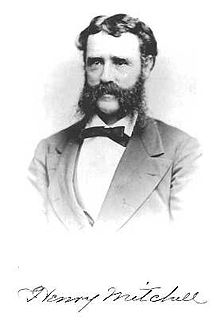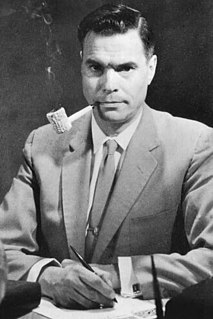A Quote by Henry Mitchell
Gardening is a long road, with many detours and way stations, and here we all are at one point or another. It's not a question of superior or inferior taste, merely a question of which detour we are on at the moment. Getting there (as they say) is not important; the wandering about in the wilderness or in the olive groves or in the bayous is the whole point.
Related Quotes
A dialogue is very important. It is a form of communication in which question and answer continue till a question is left without an answer. Thus the question is suspended between the two persons involved in this answer and question. It is like a bud with untouched blossoms . . . If the question is left totally untouched by thought, it then has its own answer because the questioner and answerer, as persons, have disappeared. This is a form of dialogue in which investigation reaches a certain point of intensity and depth, which then has a quality that thought can never reach.
I don't think we should just 'muddle through' and ignore the question of life's meaning. Or better, perhaps, I don't think it is a question that can be ignored once the business of asking about the worth and significance of what one is doing - one's work, one's pleasures, one's ambitions and so on - has got going. You can't at any point stop the urge to ask Tolstoy's questions, '... and then what?', 'What's the point of that?'.
This is a good thing to say to film students. If there's a story point that you don't feel right about, that there's a question you have - "Does it really make sense?" Or, "Is that plausible? Is it implausible? Is it set up?" Or whatever. Go at it. Don't let it go. If there's a question in your mind, you're probably right. You probably do need to work on it and think about it more.
[from the television show,"Evade the Question Time"]At the end of the first round, I will award three points to Mr. Kaine for an excellent nonspecific condemnation, plus one bonus point for blaming the previous government and another for successfully mutating the question to promote the party line. Mr. van de Poste gets a point for a firm rebuttal, but only two points for his condemnation, as he tried to inject an impartial and intelligent observation.
Even today many educated people think that the victory of Christianity over Greek philosophy is a proof of the superior truth of the former - although in this case it was only the coarser and more violent that conquered the more spiritual and delicate. So far as superior truth is concerned, it is enough to observe that the awakening sciences have allied themselves point by point with the philosophy of Epicurus, but point by point rejected Christianity.
We figured the interesting question for them is, "Where has the family been since 2006, since the last time we saw them?" So, part of the time, we had to spend answering that question. Then, inevitably, it goes up to a point of crisis, in everyone's show. There was just no getting around that it was about 2006-2012.
I have studied many religions, many different persuasions of thought in Christian belief, and I have come, in this experience to this: the most important question in anyone's life is the question asked by poor Pilate in Matthew 27:22: 'What shall I do, then, with Jesus who is called Christ?' No Other question in the whole sweep of human experience is as important as this. It is the choice between life and death, between meaningless existence and life abundant. What will you do with Christ? Accept Him and life, or reject Him and die? What else is there?





































